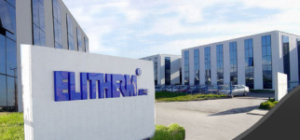Greece: Urban Citizens Struggle to Pay Heating Bills
February 18, 2013
 On 15 October 2012, Greece increased the tax on heating oil – drastically: Instead of EUR 0.90 to 1.05, consumers now have to pay around EUR 1.30 to 1.40 per litre. Heating one’s home has become a challenge for many people, who switch to wood as an alternative fuel. The only good thing about the entire situation: The high oil price may encourage customers to invest in solar thermal systems as well. The most recent international study ISOL Navigator published in December 2012 shows both a currently very positive business index and a 5.6 % growth in the newly installed collector area within the country. Still, the future does not look very bright indeed, as the economic situation is rather uncertain. For the first time, December’s Forecast Business ISOL Index has been below the Current Business Index, which points to a downward trend in the market this year.
On 15 October 2012, Greece increased the tax on heating oil – drastically: Instead of EUR 0.90 to 1.05, consumers now have to pay around EUR 1.30 to 1.40 per litre. Heating one’s home has become a challenge for many people, who switch to wood as an alternative fuel. The only good thing about the entire situation: The high oil price may encourage customers to invest in solar thermal systems as well. The most recent international study ISOL Navigator published in December 2012 shows both a currently very positive business index and a 5.6 % growth in the newly installed collector area within the country. Still, the future does not look very bright indeed, as the economic situation is rather uncertain. For the first time, December’s Forecast Business ISOL Index has been below the Current Business Index, which points to a downward trend in the market this year.
Photo: Urs Flükiger / pixelio.de
Before the Greek government aligned the taxes of diesel fuel and heating oil last October, people had used heating oil to avoid the high tax burden. Whereas both fuel sources are now at EUR 329 per 1,000 litres, the taxes on diesel fuel used to be EUR 412 and the ones on heating oil were EUR 60. “Oil heating is the main heating fuel, followed by gas, electricity and wood,” says Costas Travasaros, General Manager of Greek absorber manufacturer Prime Laser Technology.
How hard the price increase affects homeowners depends on their location. In Athens, it means an increase from about EUR 1,500 to EUR 2,500 per year. In Thessaloniki, heating costs increase from an average EUR 3,000 to EUR 4,500 per year. Despite the government’s support for low-income families, it has become difficult for almost everyone to pay their heating oil bills. Many change to wood as an alternative fuel source. “The winner is wood heating and related equipment. And there are many new businesses in this sector all over Greece. They are actively helping to spread this form of heating across the country. Unfortunately, the newly found love for wood results in dangerous pollution levels,” says Travasaros. Pictures of smog in Greek cities are all over the news. Also, there is no sustainable wood source in Greece to provide enough fuel for so many people. According to some websites, people even gather wood from parks and recreation areas in the cities.
Solar water heaters benefit only indirectly from this situation. “There is still very little solar space heating in Greece,” says Evangelos Nikolopoulos, Business Development Manager at Calpak-Cicero Hellas, a Greek collector and tank manufacturer. This has not changed yet. What, however, has changed is that besides the classic combination of electric and solar water heating with thermosiphon systems, there may soon be a market for forced circulation systems which will support central heating fired by oil or gas. Nikolopoulos sees a slight increase in the sales of this type of system. Altogether, it is not enough for a growth increase in the solar thermal market. “It is not easy to say how much this will play a role: It looks like the price increase of oil, gas and electricity has compensated for the loss of the market for newly built houses,” says Travasaros.
The dominating aspect in Greece’s near future is its economic insecurity and this uncertainty will not spare solar thermal. “The construction industry is not expected to recover in the short term. Unemployment is increasing to record levels. Salaries – for those who have a job -are dropping. Taxes are up. Altogether, this means that the available income for investments is shrinking and loans are not an option. But I agree that oil, gas and electricity prices and the smoke from fire places will push solar water heating and solar-assisted space heating over the long term. It will allow us to retain a fair market volume,” says Travasaros.
The solar thermal industry offers hope to Greek’s economy: the country still shows a strong export market. According to the Greek Solar Industry Association, Greek’s solar exports grew by 13.4 % in 2012.
More information:
http://greece.greekreporter.com/2013/01/22/high-oil-prices-drive-greeks-to-burn-wood/
Calpak: http://www.calpak.gr
Prime Laser Technology: http://www.primelastertech.gr
Get the ISOL Navigator: http://www.solrico.com/en/navigator.html


